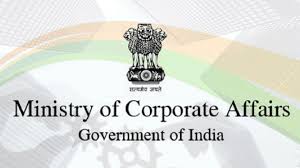What is Trademark Registration? A Complete Guide for Indian Businesses (2025 Update)

Trademark registration is one of the most crucial steps for any business looking to establish a distinct identity in the marketplace. If you're an entrepreneur or a business owner in India, you may find yourself asking, "What is trademark registration?" Trademark registration is a legal process through which a business secures exclusive rights over a name, logo, slogan, or any distinctive symbol that represents its brand. In this guide, we will take you through everything you need to know about what is trademark registration, including the types of trademarks in India, the required documents, the step-by-step process, and how to check the trademark registration status. By the end, you'll have a comprehensive understanding of how trademark registration can safeguard your business and brand identity. Trademark registration is a legal process that protects a business's intellectual property. It gives the owner exclusive rights to use a specific symbol, word, or logo that distinguishes the goods or services from those of others. Registering a trademark is an essential step in securing your brand, as it legally protects your identity from being used or copied by competitors. When you successfully register a trademark, you receive a trademark registration certificate that proves your ownership. This certificate is an important legal document that can be used in case of disputes or infringements. In India, company trademark registration is required to ensure that your business’s intellectual property is safeguarded. Without registration, others could legally use your brand’s name or logo, potentially confusing customers and damaging your brand's value. India offers various types of trademarks, each serving different purposes. Understanding these types is vital when considering what is trademark registration for your business. The main types of trademarks in India are: Wordmark: A wordmark refers to a trademark that is made up of words or letters that represent a company or brand. For example, "Coca-Cola" is a wordmark. Logo: A logo is a unique design that represents a brand. Examples include the Nike swoosh and the McDonald’s golden arches. Sound Mark: A sound mark is a distinctive sound that identifies a brand, such as the famous Intel jingle. Color Combinations: Some brands protect a specific combination of colors that is synonymous with their identity, such as Tiffany’s distinctive blue color. Shape of Goods: Unique shapes of products or packaging, like the shape of the Coca-Cola bottle, can be trademarked. Understanding which type of trademark registration suits your brand will help you make an informed decision and ensure proper protection. To successfully apply for company trademark registration, you will need to provide certain trademark registration documents. These documents ensure that the application is processed smoothly and the trademark is granted without unnecessary delays. Here are the essential documents required: ID Proof: A government-issued identification proof of the applicant, whether an individual or a company. Logo or Brand Design: If you're applying for a logo or design, you need to submit a clear representation of the logo. Proof of Business: Documentation that proves your business exists, such as an incorporation certificate or business registration certificate. Signed TM-48 (Power of Attorney): If you are using a legal professional or trademark attorney to file on your behalf, the TM-48 form is required, which grants them authority to handle your trademark application. Ensuring that all trademark registration documents are complete and accurate is crucial for a smooth application process. Incomplete or incorrect paperwork can lead to delays and potential rejections. Now that you understand the importance of what is trademark registration, let’s explore the process involved in obtaining a trademark for your brand in India. The process involves several stages: Trademark Search: The first step is to conduct a trademark search. This allows you to check if your desired trademark is already registered or if it’s too similar to an existing one. This search can be done online through the IP India portal. Choose Trademark Class: In India, trademarks are classified into 45 different classes. You need to select the class that best represents the goods or services your business provides. Application Filing: After completing the search and selecting the class, you can file your trademark application with the trademark office. This can be done online through the IP India portal. Examination & Objections: The application will be examined by the trademark office. If there are any objections, the applicant will be notified and must respond accordingly. Advertisement in Journal: If the trademark passes the examination phase, it will be published in the Trademark Journal, allowing third parties to oppose it if necessary. Trademark Registration Certificate Issuance: If no opposition is filed, or if the opposition is successfully resolved, the trademark office will issue your trademark registration certificate. The entire process of trademark registration may take anywhere from 12 to 18 months, depending on various factors like objections or delays in processing. Once you’ve filed your application, it’s important to know how to check trademark registration status. You can track the progress of your trademark application at any time by following these steps: Visit the IP India Portal: The official IP India portal allows you to track your application using your application number. Track Progress: The portal will show whether your application is still under examination, if objections have been raised, or if it has been published in the Trademark Journal. Receive Updates: You’ll also be notified if there are any changes in your application status or if further action is needed. Being proactive and monitoring your application’s progress helps ensure that you don’t miss any critical updates in the trademark registration process. Trademark registration offers numerous benefits, especially for startups and small-to-medium enterprises (SMEs). Here are some of the key advantages: Exclusive Rights: Registering a trademark gives you exclusive rights to use the trademark, preventing others from using it without your permission. Brand Recognition: A registered trademark helps build a distinct identity for your business, making your brand more recognizable to customers. Legal Protection: In case someone tries to infringe on your trademark, you have legal recourse to protect your intellectual property and stop unauthorized use. Business Valuation Booster: A registered trademark can increase your business’s value by demonstrating that your brand is protected, which can be important for attracting investors or selling the business. Expansion Opportunities: With a trademark, you can enter new markets and expand your business through franchising or licensing your trademark to others. While trademark registration is essential for protecting your brand, there are some common mistakes that entrepreneurs often make during the process. Avoid these pitfalls to ensure a smooth registration experience: Filing Under the Wrong Class: Ensure that you choose the correct trademark class that reflects the goods or services your business offers. Not Checking for Similar Trademarks: Before filing, perform a thorough trademark search to ensure that your trademark is unique and doesn’t conflict with existing registrations. Skipping Legal Help: While it’s possible to file for a trademark on your own, it’s highly recommended to consult a trademark expert who can guide you through the process and avoid costly mistakes. Forgetting Renewals: A registered trademark is valid for 10 years. Make sure to renew your trademark when it’s due to maintain ongoing protection. If you’re ready to protect your brand and secure a trademark registration certificate, MyCompanywala can help guide you through the entire process. With our expert team, we ensure that your trademark is properly registered and protected, helping you focus on growing your business. For more information, visit MyCompanywala and get started on your trademark registration today.What is Trademark Registration?
Types of Trademarks in India
Trademark Registration Documents You Need
Step-by-Step Process of Trademark Registration in India
How to Check Trademark Registration Status
Benefits of Trademark Registration for Startups & SMEs
Common Mistakes to Avoid
Get Expert Help from MyCompanywala

























.jpg)
.jpg)



.jpg)
.jpg)
.jpg)
.jpg)










